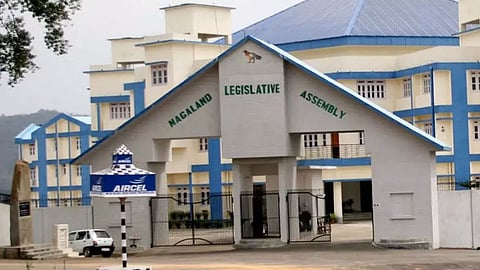
- Home
- Live Blog
- Breaking News
- Top Headlines
- Cities
- NE News
- Sentinel Media
- Sports
- Education
- Jobs

KOHIMA: In a historic stride toward gender inclusivity, the Nagaland assembly recently approved the Nagaland Municipal Bill 2023, a groundbreaking legislation spearheaded by Chief Minister Neiphiu Rio. This landmark bill aims to reserve one-third of seats in urban local bodies (ULBs) for women, marking a pivotal moment in the state's commitment to fostering women's participation in governance.
Chief Minister Neiphiu Rio, while introducing the bill in the assembly, emphasized its significance by excluding provisions related to taxes on land and buildings. Instead, the focus was squarely on addressing the underrepresentation of women in urban local bodies, reflecting a conscious effort to bridge gender gaps in political leadership.
In his address to the assembly, Chief Minister Rio articulated that the legislation was not the culmination but rather the commencement of a transformative journey. He urged citizens to perceive this law as a foundational step towards achieving more comprehensive gender equality in governance and civic life.
Rio underscored the timeliness of women's active involvement in the administration of urban local bodies, aligning with the burgeoning urbanization in Nagaland. Despite being a late entrant into the urbanization process, the state has witnessed a rapid pace of urban development. With 39 urban local bodies now established, Rio emphasized the need to empower local self-governments to meet the evolving demands of the growing urban population.
The chief minister's words echoed a broader vision of ensuring that the urban infrastructure and amenities required for a burgeoning population are effectively managed and delivered through inclusive and participatory local governance. This legislation not only addresses the immediate need for women's representation but also lays the groundwork for a more equitable and representative future in Nagaland's political landscape.
As Nagaland embraces this transformative legislation, it sets a precedent for other regions to follow, encouraging the active involvement of women in shaping the future of urban local governance. The one-third reservation for women in ULBs signifies not just a legal provision but a symbolic commitment to fostering a more inclusive and diverse political arena in Nagaland.
ALSO WATCH: